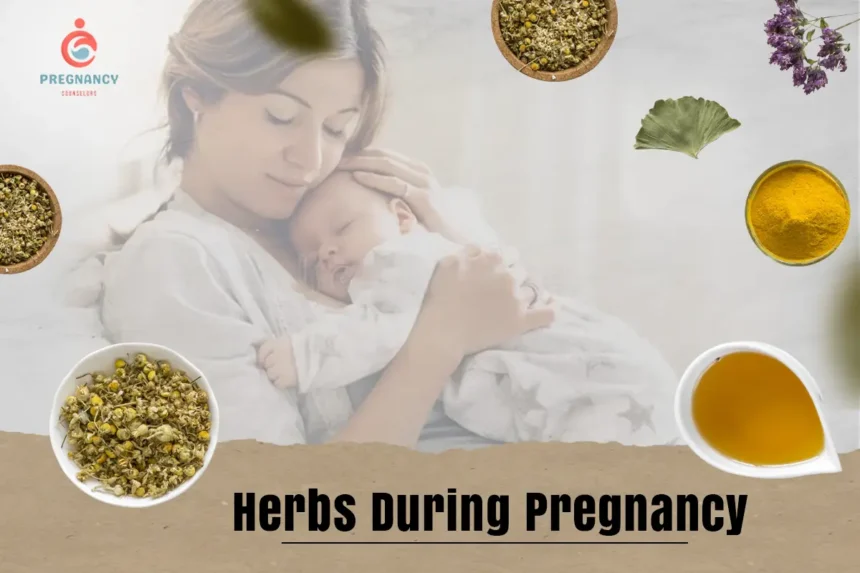Herbs and Pregnancy: Pregnancy is a unique phase in a woman’s life, filled with excitement, anticipation, and careful decisions about health and nutrition. Alongside a balanced diet, many expecting mothers consider natural remedies and herbs and pregnancy practices to support their journey. Herbs have been used for centuries to improve digestion, reduce stress, and enhance overall well-being. However, not all herbs are safe during pregnancy, and it’s essential to understand which ones can help and which to avoid.
Understanding the Role of Herbs During Pregnancy
Herbs and Pregnancy: Herbs are plants or plant extracts used for medicinal or therapeutic purposes. During pregnancy, certain herbs and pregnancy remedies can support health by improving digestion, reducing nausea, relieving mild pain, and providing essential nutrients. For example, ginger has long been used to combat morning sickness, while peppermint can help with nausea and indigestion.
It’s important to remember that natural does not always mean safe. Certain herbs can cause uterine contractions, affect hormone levels, or interact with medications. Therefore, pregnant women should consult their healthcare provider before including any herb in their diet.
Common Safe Herbs During Pregnancy
Several herbs are considered generally safe and beneficial when consumed in moderation:
1. Ginger
Ginger is widely used to reduce nausea and vomiting, especially during the first trimester. A small amount of fresh ginger, ginger tea, or ginger candies can help alleviate morning sickness without harming the baby.
2. Peppermint
Peppermint can relieve nausea, indigestion, and bloating. Peppermint tea is a popular way to enjoy its calming effects. However, concentrated peppermint oil should be avoided unless recommended by a doctor.
3. Lemon Balm
Lemon balm has a calming effect and can help reduce anxiety, stress, and insomnia during pregnancy. A cup of lemon balm tea in the evening can improve sleep quality.
4. Red Raspberry Leaf
Red raspberry leaf is often used in the later stages of pregnancy to tone the uterus and support labor. It should be consumed under medical guidance, usually in the third trimester.
5. Chamomile
Chamomile tea can help reduce anxiety and improve sleep. However, pregnant women should avoid excessive use, as high doses may increase the risk of uterine contractions.
Herbs to Avoid During Pregnancy
While some herbs are beneficial, others can be harmful and should be strictly avoided:
- Pennyroyal: Can induce uterine contractions and miscarriage.
- Sage (in large quantities): May stimulate uterine contractions.
- Black Cohosh: Known to induce labor and cause complications.
- Castor Oil: Can lead to premature labor and dehydration.
- Aloe Vera (internal use): May cause uterine contractions and digestive issues.
It’s crucial to read labels on herbal supplements carefully, as they may contain concentrated extracts that are not safe during pregnancy.
Benefits of Using Herbs in Pregnancy
When used correctly and safely, herbs can provide multiple benefits for expecting mothers:
- Reduce Morning Sickness: Ginger and peppermint help manage nausea and vomiting in the early stages.
- Aid Digestion: Fennel and chamomile support healthy digestion and relieve bloating.
- Promote Relaxation: Lemon balm, chamomile, and lavender can reduce anxiety and improve sleep.
- Prepare for Labor: Red raspberry leaf may strengthen the uterine muscles in late pregnancy.
- Boost Immunity: Herbs like ginger and garlic can support immunity, which is vital during pregnancy.
How to Use Herbs Safely During Pregnancy
Using herbs safely requires careful consideration and moderation:
- Consult Your Doctor: Always discuss herbal use with your healthcare provider before consumption.
- Avoid High Concentrations: Stick to teas and small amounts of fresh herbs rather than concentrated extracts.
- Monitor Your Body: Stop any herb that causes discomfort, allergic reactions, or unusual symptoms.
- Avoid Self-Medication: Never use herbs to treat severe conditions like high blood pressure or infections without medical advice.
Herbal Teas During Pregnancy
Herbal teas are a popular and safe way to incorporate herbs into a pregnant woman’s diet. Some recommended herbal teas include:
- Ginger Tea: Reduces nausea and improves digestion.
- Peppermint Tea: Eases stomach discomfort and relieves bloating.
- Chamomile Tea: Promotes relaxation and better sleep.
- Lemon Balm Tea: Reduces anxiety and stress.
Avoid herbal teas containing unknown blends or high concentrations of strong herbs that are unsafe during pregnancy.
Nutritional Considerations
While herbs provide therapeutic benefits, they should complement a healthy, balanced diet. Expectant mothers should focus on:
- Proteins: Eggs, beans, lentils, and lean meats.
- Calcium: Milk, yogurt, and fortified plant-based alternatives.
- Iron: Spinach, legumes, and fortified cereals.
- Folic Acid: Leafy greens, citrus fruits, and prenatal vitamins.
- Hydration: Drinking plenty of water along with safe herbal teas.
Herbs alone cannot replace essential nutrients, so they should be part of a holistic approach to prenatal care.
Risks of Excessive Herb Use
Even safe herbs can be harmful if overused:
- Excess ginger can cause heartburn or blood-thinning effects.
- Overconsumption of chamomile may lead to allergic reactions or uterine stimulation.
- Red raspberry leaf should be limited to late pregnancy; early use may be risky.
Moderation is key, and pregnant women should always follow guidelines provided by healthcare professionals.
Conclusion
Herbs can be a wonderful addition to a healthy used wisely. They provide natural remedies for nausea, digestion, stress relief, and relaxation. However, safety should always be the top priority. Consulting a doctor, using moderate amounts, and avoiding harmful herbs can help expectant mothers reap the benefits without risks.
Incorporating safe herbs like ginger, peppermint, chamomile, lemon balm, and red raspberry leaf, along with a balanced diet and regular prenatal care, can enhance comfort and well-being throughout pregnancy. With knowledge and care, herbs can support a healthier, happier pregnancy journey.

